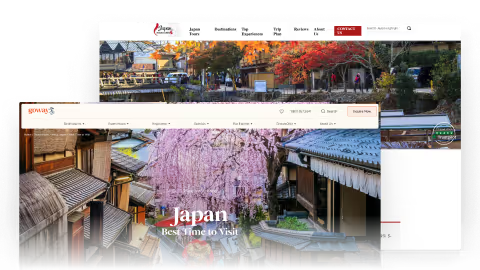Use Case
/
Competitive Market Analysis
Analyze industry trends, competitors, and market shifts to inform strategic decision-making and drive business growth
Model
•
Ninja Agent
Create a detailed competitive analysis of Mercedes-Benz versus its top 3 competitors. Focus on: market positioning, unique value propositions, pricing strategies, customer segments, and growth trends. Identify key opportunities and threats in the market.
Competitive Analysis: Mercedes-Benz vs Top Luxury Automotive Competitors
Executive Summary
This report analyzes Mercedes-Benz's competitive position against its three main competitors: BMW, Audi, and Lexus in the luxury automotive market. The global luxury car market is experiencing significant growth, projected to reach USD 1,366.62 billion by 2034 12.
Market Position and Sales Performance
Global Market Leadership
- BMW leads the global luxury car segment with 2.2 million vehicle deliveries 13
- Mercedes-Benz maintains a strong position but trails BMW in global sales
- Audi follows with approximately 1.7 million vehicle deliveries 13
- In the US market, Q1 2025 shows close competition between Lexus and BMW, with Mercedes-Benz in third place and Audi facing pressure from Cadillac 19
Regional Performance
In Canada's 2024 market:
- Audi: 33,644 units (down 4%)
- BMW: 30,623 units (down 1%)
- Lexus: 29,704 units (down 5%)
- Mercedes-Benz: 28,076 units (down 3%) 93
Brand Positioning and Value Propositions
Mercedes-Benz
- Positions itself through "Desire for Luxury" strategy 26
- Emphasizes luxury and quality over affordability 22
- Focuses on digital and sustainable innovations for future mobility 24
BMW
- Positions around "Ultimate Driving Experience" 38
- Emphasizes performance, luxury, and innovation
- Strong focus on premium positioning and exclusivity 31
Audi
- Brand identity anchored in innovation, quality, and performance 44
- "Progress Through Technology" positioning 42
- Strong emphasis on electric mobility in strategy 45
Lexus
- Focuses on quality, craftsmanship, and superior driving experiences 52
- "The Standard of Amazing" campaign emphasizes brand value 53
- Known for customer-first approach and reliability 56
Pricing Strategies
Premium Segment Positioning
- Mercedes-Benz implements premium pricing to reinforce luxury status 22
- BMW employs premium pricing strategy aligned with luxury brand image 31
- Audi prices strategically to compete with BMW and Mercedes-Benz 49
- Lexus offers competitive pricing while maintaining premium positioning 54
Entry-Level Luxury Segment
- Mercedes-Benz CLA250 and Audi A4 40 Premium Quattro priced under $45,000 66
- Mid-range models show competitive pricing:
- Mercedes-Benz E-Class: $62,450 - $70,850
- Audi A6: $58,100 - $73,350 63
Customer Segments
Demographics and Targeting
- Mercedes-Benz targets affluent customers seeking luxury vehicles 71
- BMW appeals to performance-oriented luxury buyers 35
- Audi targets specific audiences including professionals and thought leaders 43
- Lexus customers tend to be older, more likely female, with lower household incomes compared to German brands 72
Growth Trends and Market Opportunities
Market Growth
- Luxury car market expected to grow from $749 billion in 2025 to $1,366.62 billion by 2034 92
- Rising demand for luxury SUVs 9
- Increasing focus on electric vehicles and sustainability
Key Opportunities
- Electric Vehicle Market
- Growing demand for luxury EVs 64
- Mercedes-Benz leading in EV performance and range compared to Audi 89
- Digital Innovation
- AI-driven evolution reshaping the landscape 112
- Integration of digital technologies in luxury vehicles
Market Threats and Challenges
- Industry Challenges
- Energy shortages and stricter emission standards 112
- Increasing competition from new market entrants
- Economic uncertainties affecting luxury market
- Competitive Pressures
- BMW's strong market leadership 13
- Lexus's growing electrified vehicle sales 117
- Rising competition in the affordable luxury segment 61
Strategic Recommendations
- For Mercedes-Benz:
- Strengthen EV portfolio to maintain competitive advantage
- Focus on digital innovation and sustainable mobility
- Expand presence in growing luxury SUV segment
- Maintain premium positioning while offering entry-level luxury options
- Market Opportunities:
- Capitalize on growing demand for sustainable luxury vehicles
- Leverage digital technologies for enhanced customer experience
- Expand in emerging markets with growing luxury segments
- Focus on personalization and customization services
Explore Related Use Cases
Experience Ninja's AI Assistant
Try for free today. Plans starting at $19/month.




